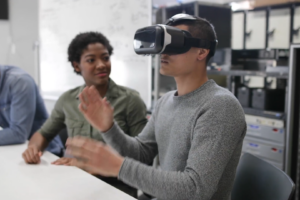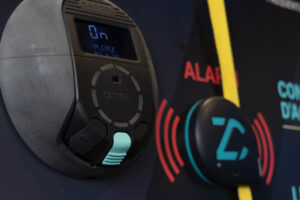
HEMPANEL: A System for Producing Thermo-Acoustic Insulating Panels from Hemp Waste
December 18, 2024
DYNAMIC: Advanced Antibacterial Biomaterials to Enhance Bone Regeneration
December 20, 202419/12/2024
Since the early 21st century, the agricultural sector has faced significant challenges, such as the increasing demand for quality products and a lack of generational replacement. In this context, the agri-food sector is compelled to follow the example of other industries and prioritise digitalisation and automation to ensure sustainability and competitiveness.
In Catalonia, where 29% of the territory is dedicated to agriculture and 70% of managed water is used for irrigation, there is a pressing need to optimise water efficiency. Achieving this goal requires the integration of technology and knowledge to assess real water demands under environmental, energy, social, and economic sustainability criteria.
The introduction of lightweight mobile robots presents a promising solution—not only reducing emissions and energy consumption but also enabling more rigorous environmental impact assessments in a previously underexplored activity. In this context, the PREVENTBot project, led by the Center for Industrial Equipment Design (CDEI UPC) at the Universitat Politècnica de Catalunya - BarcelonaTech (UPC), builds on the AgroMOBY project to further advance technical and digital transformation processes in agriculture.
The goal of PREVENTBot is to demonstrate the feasibility of autonomous systems for monitoring and measuring plant health and growth parameters in situ and in real time. The integrated system is proposed as a precision agriculture tool, aiming to save human resources, improve water and agricultural input management, and increase production efficiency. Its main objectives are:
- Demonstrating AgroMOBY’s capability to autonomously collect data in agricultural environments.
- Identifying plants and gathering data on water stress, health, and growth using combined thermal and NDVI sensors and cameras.
- Calibrating the obtained measurements through neural networks to provide water stress data for tomatoes and brassicas. Calibration will take place over one year at the Agròpolis UPC facilities in Viladecans to account for varying climatic and light conditions.
- Linking topographical navigation data with plant data to create a water stress, health, and growth map, enabling an overall crop assessment and identification of plants with anomalies.
The proposal is based on a UPC-developed technology, MOBY, validated in the indoor logistics market via the spin-off Steering Machines. PREVENTBot will use the AgroMOBY platform, an all-terrain variant of MOBY technology, incorporating hardware and software navigation systems (currently in the testing phase). The platform will integrate the mentioned sensors and data processing algorithms to monitor key crop parameters.
Budget and Funding
The project is funded through the call for Grants for Demonstration Activities in Knowledge Transfer under the Strategic Plan for the CAP 2023-2027, by the Department of Climate Action, Food, and Rural Agenda of the Generalitat de Catalunya. PREVENTBot has a total budget of €49,965.33 and a duration of 28 months (February 2024–June 2026).
Action under the PAC 2023-2027 Strategic Plan co-funded by:

Vols saber més?
Projectes Relacionats
- The Image and Video Processing Group (GPI), part of the IDEAI-UPC research group, and the Digital Culture and Creative Technologies Research Group (DiCode) from the Image Processing and Multimedia Technology Center (CITM) at the Universitat Politècnica de Catalunya – BarcelonaTech (UPC), have co-organised the AI and Music Festival (S+T+ARTS) together with Sónar+D and Betevé, to explore the creative use of artificial intelligence in music.
- The Visualisation, Virtual Reality and Graphic Interaction Research Group (ViRVIG) at the Universitat Politècnica de Catalunya - BarcelonaTech (UPC) has participated in the XR4ED project, an initiative that connects the educational technology (EdTech) and Extended Reality (XR) sectors, with the aim of transforming learning and training across Europe.
- The inLab FIB at the UPC has collaborated with Lizcore® for the development of a proof of concept based on artificial intelligence to improve safety in climbing with autobelay devices. The system allows the automatic and accurate detection of risk situations before starting a route.
- Researchers from the Centre for Image and Multimedia Technology of the UPC (CITM) and from the DiCode research group (Digital Culture and Creative Technologies Research Group) of the Universitat Politècnica de Catalunya – BarcelonaTech (UPC) have worked on the project The Eyes of History, an initiative of the Catalan Agency for Cultural Heritage that offers an immersive view of Catalan cultural heritage. It is especially aimed at the first and second cycles of secondary education and was created to bring heritage into the classroom. Its goal is to bring the history and monuments of Catalonia closer in a vivid and innovative way, using tools such as virtual reality and new museographic narratives.







